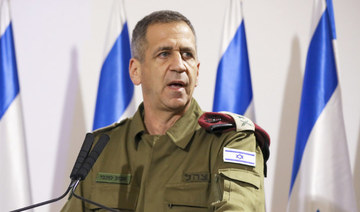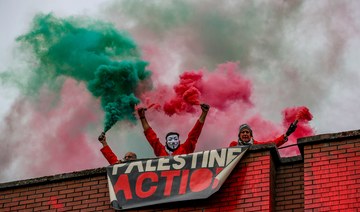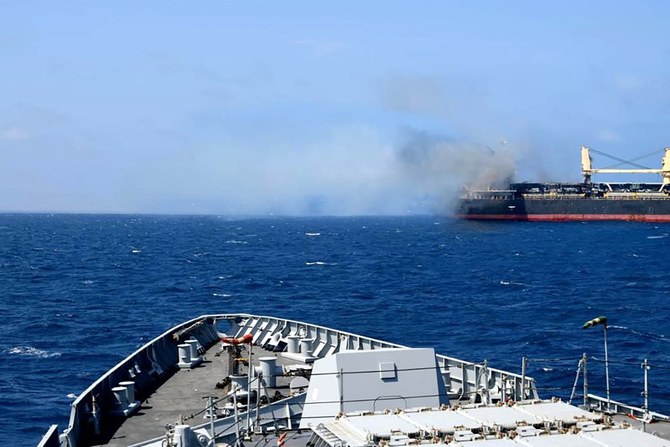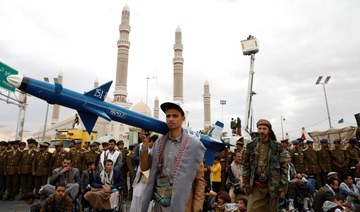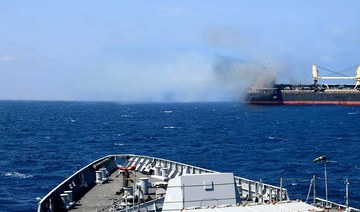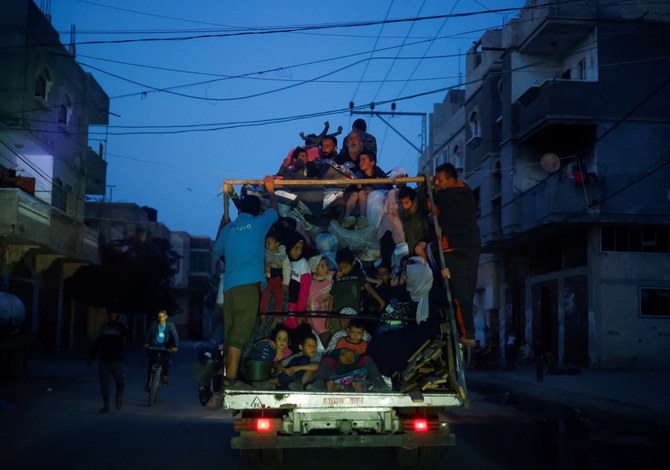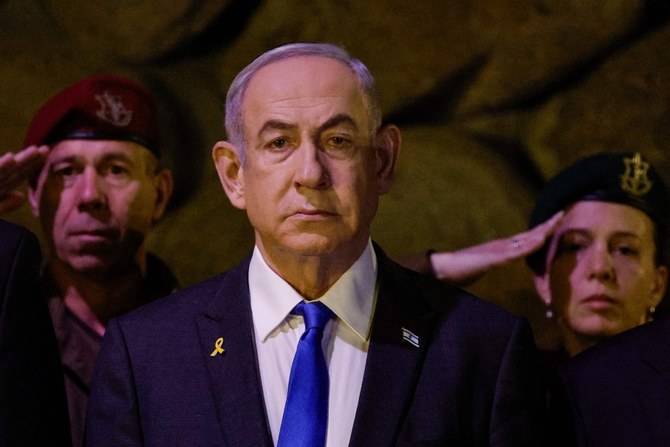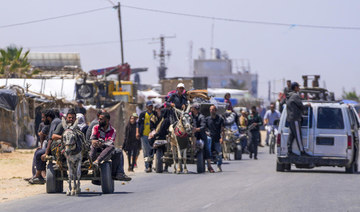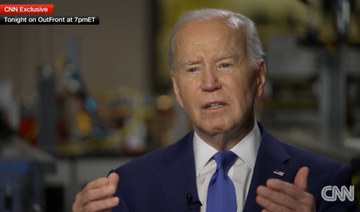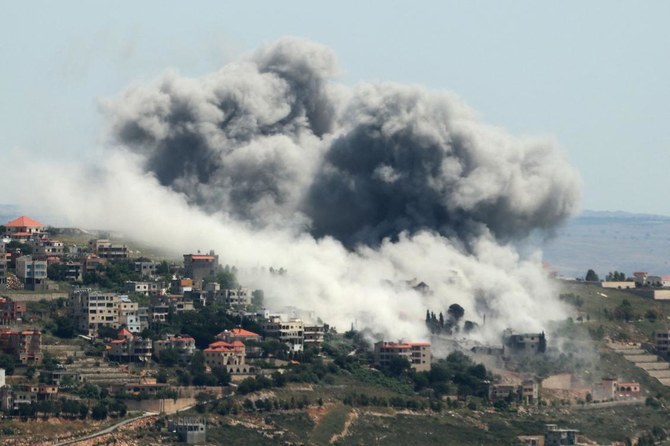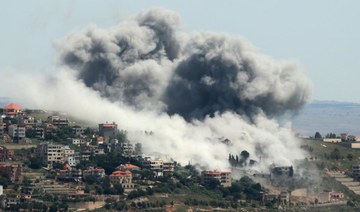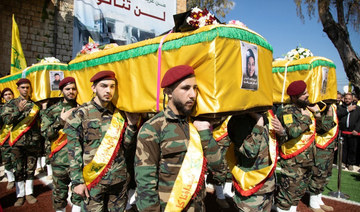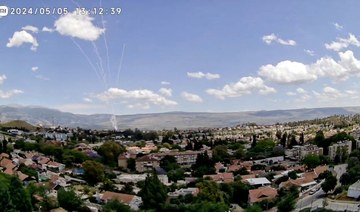CHICAGO: Wisconsin Congressman Mark Pocan said the US needs to return to the role of being an “honest broker” if there is to be peace between Palestinians and Israelis during an appearance on “The Ray Hanania Radio Show” on Wednesday.
Pocan said America needs to redirect more than $50 billion used to fund the war in Afghanistan now that the last US troops are departing the country 20 years after the Sept. 11, 2001 terrorist attacks.
A diehard supporter of Israel, having participated in many tours of the country sponsored by pro-Israel organizations, Pocan said he broadened his understanding of the conflict and sympathies when he visited Palestinian areas to see the real challenges they face.
Pocan said the US should continue to support Israel, providing help for programs like the Iron Dome missile defense system, but must also recognize the suffering of Palestinian civilians, and that illegal Israeli settlements are a part of the conflict.
“If we can get back to that point where we are seen as an honest broker by everyone, we can then use that influence of the US to try to bring about peace,” Pocan said.
“That doesn’t mean dictating solutions because it has to be decided in the region, but it does mean we can help bring people together and that is the role that the US can best do.”
Pocan, of Wisconsin’s second congressional district, said he is encouraged by the recent ouster of Benjamin Netanyahu as Israel’s prime minister, and believes the Palestinians need to hold elections. He explained people can still support Israel while criticizing the policies of the government, such as the expansion and building of new settlements.
“Seeing a broader perspective of the same very small region really made me realize that if you are ever going to have peace in the region, you have to treat everyone with respect and dignity,” Pocan said, adding he supports the broader issue of human rights for all.
“You have to have some fairness and rules, and you have to have a different attitude than I think we currently have in the region, or else you will never … achieve a peaceful solution.”
Pocan said there is a need for the US government to play a more neutral role in the Israel-Palestine conflict, to address the concerns of both sides fairly.
“What we need to do as a country is to get back to a position, and certainly in the last four years we were not in that position, of being able to bring sides together to try to negotiate peace. Every time there is a new illegal settlement you’re going to make it harder to get to peace. For everyone who professes to want a two-state solution that often says we are going to go back to this 1967 map with land swaps, if you have more illegal settlements, one you are displacing more Palestinians, but two you are going to have a harder time to get to that map to work for everyone,” Pocan said.
“But then, when you see the treatment, when you see a road with a giant (line) down the middle with one side for Israelis to drive on and the other side Palestinian … I think you look at these things and see a lot of things that are happening that will not lead to a peaceful solution. What I found, and I have said over and over again, (is) the vast, vast majority of people in both Palestine and Israel want peace.”
Pocan said that one “fundamental problem” is that the Gaza Strip is “basically an outdoor prison” which is controlled by Israel with 98 percent of the water undrinkable, and the majority of people living on food assistance from the UN. Members of the US Congress have not been permitted to enter Gaza during the past decade, he complained.
American taxpayers, who provide more than $3.8 billion in assistance to Israel every year, need to see and hear about the challenges that face Palestinians living under Israel’s occupation.
“Anywhere else, we would be having (an) outcry like we do in Yemen and other countries that have similar situations and yet this is a normal practice in the region, but it is anything but normal,” Pocan said.
“Most people don’t know about it. They hear about bombs coming in from Gaza and they hear about Israel responding with bombs. But what they don’t hear are some of the other specificities that are going on on the ground that, I think if people knew about — and people are watching closer, because of the black Lives Matter movement — I think people are seeing that if you treat people inhumanely you are going to have a bad outcome.
“It doesn’t matter whether it is in the US, it’s in Colombia, it’s in Yemen or it’s in Palestine and Israel. We just have to use human rights as a real high measuring tool that we expect human rights and dignity for everyone as an absolute minimum standard.”
Pocan said he supports Israel on many fronts, including providing funding and technology for the Iron Dome which was built to intercept rockets fired from the Gaza Strip. But Pocan also said that with the Iron Dome protecting Israelis, there is no need for widespread retaliation.
“If a missile does come or a rocket does come from Gaza and you take it out in the air, no one has been injured and there is no need for additional retaliation. The problem is right now in what we just saw when there is missiles from Gaza, they used our support with the Iron Dome but then they also sent 20 times the number of missiles and displaced a hundred thousand people and killed dozens of children and hundreds of people. That isn’t the intention of de-escalation,” Pocan said.
“So, when I call things out like that I am supportive of something that is a core part of the defense that they have, that the US gives, but I also expect it to be used in the manner we intended. And if it is not then it is appropriate to call out the misuse.”
Pocan said that peace can only be achieved if both sides want peace and if the US resume its former role as “an honest broker” in dealing with the Israelis and Palestinians.
Pocan also called for a “smarter use” of American funding to address the needs of the American people. Noting the decision to withdraw completely from Afghanistan, the more than $50 billion used to support the US presence in Afghanistan should be “redirected” to address issues such as healthcare, jobs and climate change.
He said the money should be redirected towards “things that are … a real threat to the country,” such as responding to the coronavirus disease pandemic, which he called the “biggest threat the US has faced” since 2019.
“We spend too much on the Pentagon, period,” Pocan argued. He said former President Donald Trump increased the US defense budget by 20 percent without allowing an audit or oversight of spending, adding “there is obviously a lot of waste and fraud.”
Pocan was speaking on “The Ray Hanania Radio” show on the US Arab Radio Network, which is sponsored by Arab News. The show is broadcast live every Wednesday morning at 8 a.m. EST on WNZK AM 690 radio in Detroit and on WDMV AM 700 radio in Washington D.C.
All of the show’s interviews are podcast and available at ArabNews.com/RayRadioShow.



